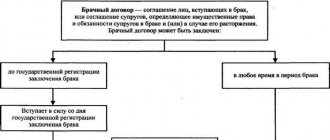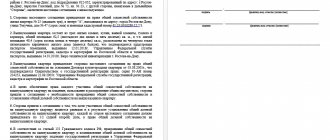Definition of a communal apartment according to the Housing Code of the Russian Federation
There is no clear formulation of this term in the legislation. It refers to a structurally separate living space located in an apartment building. It consists of several residential and non-residential premises. In such a territory live people who are not related to each other. Everyone is considered a shared owner or tenant of the room. Article number 41 of the Housing Code explains what a communal apartment is. Definition by law: this is an apartment inhabited by several families. The room allocated for them to sleep and rest is their personal property. And the kitchen and bathroom are considered public. This gives rise to special standards for the conduct of common life.
Several families live in a communal apartment at the same time
The concept of a communal apartment in the housing complex of the Russian Federation
Order No. 233 dated August 6, 2001 lost force due to the publication of Order No. 53 of the Ministry of Justice of the Russian Federation dated April 12, 2012. Now ROSREESTR has nothing to hide behind. First sheet second sheet
Registration of a purchase and sale agreement for an unallocated share is illegal. Registration of such agreements remains the responsibility of the registrars of the Federal Service for State Registration of Cadastre and Cartography. (ROSREESTR).
Residential premises, according to paragraph 4 of Article 244 of the Civil Code of the Russian Federation, can be both divisible and indivisible things.
A separate (not communal) apartment in a multi-storey building is an indivisible thing.
The rules of Article 133 of the Civil Code of the Russian Federation apply to indivisible things. The allocation of a share in such residential premises can only be carried out in accordance with Article 252 of the Civil Code of the Russian Federation.
According to the rules, you can only determine the procedure for using the apartment or receive compensation.
The contract for the sale and purchase of a share does not exist by law, that is, it is void even without a court decision in accordance with paragraph 7 of the Civil Code and Article 554 of the Civil Code of the Russian Federation. Such an agreement is considered not concluded, since the subject of the agreement is not defined in it. And there are no grounds for registering ownership of the share.
A share in ownership is not a thing.
Article-by-article commentary on articles 549 - 558 of the Civil Code of the Russian Federation (edited by P.V. Krasheninnikov)
The unallocated share cannot be sold by law, because it is not the object of housing law. Article 15 of the Housing Code of the Russian Federation gives the concept of the object of housing law, in Art. 16 of the RF Housing Code lists the types of residential premises. There is no talk about the unallocated share. Only the share allocated in kind is considered an object of housing rights, because There is a cadastral passport for it and such a share cannot be sold. Art. 246 and 250 of the Civil Code of the Russian Federation are not applicable to the sale of unallocated shares. Article 1 of the basic terms of the law on state registration of rights to real estate and transactions with it states that the cadastral passport is the number of the property. The unallocated share does not have a cadastral passport, is not a piece of real estate, it is just a share in the right to own the common property of the owners. Cadastral passports for unallocated shares do not exist, therefore, the purchase and sale of such shares is impossible by law. The resolution of the Constitutional Court of the Russian Federation dated March 13, 2008 No. 5-P in the case of verifying the provisions of subparagraphs 1 and 2 of Article 220 of the Tax Code refers to the sale of a real allocated share, paragraph 3. A deduction is provided upon the sale of an allocated share. Therefore, I believe that purchase and sale agreements for unallocated shares are illegal. In this regard, I would like to know the opinion of lawyers regarding the recognition of the agreement for the sale and purchase of unallocated shares as imaginary. What are the chances of such a transaction being declared invalid? In Moscow there are already cases of such transactions being declared invalid.
Registrars believe that all privatized apartments in shares, without exception, are communal.
The Housing Code of the Russian Federation has Article 42. Determination of shares in the right of common ownership of common property in a communal apartment. There is no article on determining shares in the right of common ownership of common property in a separate apartment and cannot exist.
Rules for living in a communal apartment
Their peculiarity is that each tenant has the right to have complete control over only his own room. He can rent it out or temporarily register unauthorized persons on it. It is allowed to invite guests to a shared apartment who will be able to use public property. All residents of the square meters have the right to exploit it equally. But the concept of a communal apartment implies that it is impossible to modify these premises without the consent of other owners . Since they are equal shareholders of this property.
If repairs are required, the decision is made jointly. In this case, cash costs are distributed based on the shares of each tenant. Public areas belong to all neighbors equally.
Common property in a communal apartment
Such a living space is equipped not only with living space, but also with additional premises. They belong to collective use areas that provide for the needs of household members. It is permissible to force them into furniture and repairs. However, any redevelopment of these areas must be agreed upon with neighbors. This is due to the fact that these parts of the apartment have the status of common ones. They belong to the residents on the basis of shared ownership. Similar household items include:
- corridors;
- toilet;
- kitchen;
- bathroom;
- hallway;
- change house.
It is permissible to combine these objects: to increase the kitchen space due to the footage of the corridor. Then you will need to obtain the consent of all household members, collect a package of documentation and take it to the local self-government unit to obtain permission for redevelopment. But there are restrictions that apply to common areas. It is prohibited to sell your share only of the public part, reserving the residential area. It is also unacceptable to allocate one's share of public premises. This is explained by the fact that such space is not subject to state registration, and therefore does not fully belong to the tenant. Privatization of public areas of communal apartments is also impossible.
Residents can use the common area together
Commentary on Article 42 of the RF Housing Code
1. The size of the share in the right of common ownership of common property in a communal apartment is determined based on the fact that the specified share is proportional to the size of the total area of the room belonging to the owner in this apartment. At the same time, the total area of the room belonging to the owner does not include the area of balconies, loggias, verandas and terraces (see Part 5 of Article 15 of the Code).
If in a communal apartment the owner owns two (or more) rooms, then it should be assumed that this circumstance in itself should not be taken into account when determining the size of his share in the right of common ownership, since the decisive factor in this case is not the number of living rooms, but their total area.
Thus, the shares of participants in common ownership in a communal apartment are not equal. Therefore, in this case, the rules of civil law on shared rather than joint ownership apply. In this regard, it is advisable to keep in mind that the share of a participant in shared ownership can be increased according to the rules of the first paragraph of clause 3 of Art. 245 of the Civil Code of the Russian Federation, if this participant has carried out at his own expense inseparable improvements to the common property.
2. The owner of a room in a communal apartment, in addition to the right to a share in the ownership of the common property in this apartment, also has a share in the ownership of the common property in an apartment building. It is proportional to the sum of: a) the size of the total area of the specified room and b) the size of the area of the premises constituting the common property in this apartment, determined in accordance with the share of the given owner in the right of common ownership of common property in a communal apartment.
3. In accordance with the principle underlying Part 2 of Art. 37 of the Code, part 3 of Art. 42 contains a mandatory rule on the succession of the share in the right of common ownership of common property in a communal apartment of the owner of the room to the fate of the right of ownership of the room belonging to this owner. In the event that the owner of a room in a communal apartment alienates his room to another person (sells, donates, exchanges, etc.), not only the ownership of the specified room passes to the new owner (acquirer), but also the ownership of the room that belonged to the previous owner share in the right of common ownership of common property in a communal apartment.
4. In cases where the ownership of a room in a communal apartment is transferred to another person on the basis of a transaction or by inheritance, the share in the right of common ownership of the common property in this apartment passes unchanged to the new owner.
5. Imperative norms, part 5, art. 42 of the Code prohibit the owner of a room in a communal apartment from committing actions that violate the principle that the share in the right of common ownership of the owner of a room in a communal apartment follows the fate of the ownership of the specified room (see Part 3 of Article 42 of the Code). See also commentary to Art. 38 of the Code.
6. The right of first refusal is the right of participants in common shared ownership in relation to a share in their property sold to an outsider at the price for which it is sold, and on other equal conditions, except in the case of sale of such a share at public auction. Assignment of the right of pre-emption to purchase a share is not permitted.
According to Art. 250 of the Civil Code of the Russian Federation, public auctions for the sale of a share in the right of common ownership in the absence of consent to this from all participants in shared ownership can be held in cases provided for in Part 2 of Art. 255 of the Civil Code of the Russian Federation, and in other cases provided for by law.
The seller of a share is obliged to notify in writing the other participants in shared ownership of his intention to sell his share to an outsider, indicating the price and other conditions under which he sells it. If the remaining participants in shared ownership refuse to purchase or do not acquire the sold share in the ownership of real estate within a month from the date of notification, then the seller has the right to sell his share to any person.
When selling a share in violation of the right of first refusal, any other participant in shared ownership has the right, within three months, to demand in court the transfer of the rights and obligations of the buyer to him.
The stated rules also apply when alienating a share under an exchange agreement.
In accordance with paragraph 1 of Art. 24 Federal Law of July 21, 1997 N 122-FZ “On state registration of rights to real estate and transactions with it”, when selling a share in the right of common ownership to an outsider, documents confirming that the seller of the share notified the others in writing are attached to the application for state registration participants in shared ownership about their intention to sell their share, indicating the price and other conditions on which they are selling it.
The application for state registration may be accompanied by documents confirming the refusal of the remaining participants in shared ownership to purchase a share and drawn up by the body carrying out state registration of rights or notarized. In this case, state registration of the right to a share in common property is carried out regardless of the period that has passed since the seller notified the share to the remaining participants in shared ownership.
If the application for state registration is not accompanied by documents confirming the refusal of the remaining participants in shared ownership to purchase the share, the state registrar is obliged to suspend state registration until the expiration of a month from the date the seller of the share notified the remaining participants in shared ownership, if on the day of filing the application for state registration such the deadline has not expired.
Disputes between participants in shared ownership that arise during state registration of the right to a share in common property are subject to resolution in court.
Differences from the hostel
Both types of housing involve strangers living together on the same territory. Everyone owns a living space. All neighbors use the rest of the space equally. At the same time, the rules of living in a communal apartment are set by its residents. They themselves draw up a cleaning schedule and standards for using the public area. And the standards of behavior in the hostel are usually regulated by the commandant. There are other differences between these types of real estate.
| Communal apartment | Dormitory |
| Each resident has their own kitchen utensils (burners and dishes are shared between neighbors). | Kitchen utensils are not shared; residents use all utensils together. |
| May be privatized. | Not privatized. |
| Used for permanent residence. | Intended for temporary residence. |
| One person or family lives in one room. | Up to ten strangers can live in one room. |
| There are no strict prohibitions for residents. | There are restrictions on receiving guests and using the property. |
The main difference between a hostel and a communal apartment is its intended purpose. Communal services are provided to citizens by decision of the authorities, regardless of the place of work and status of the people. Such objects can be located in any part of the city. And places in dormitories are distributed according to the production principle. Those who work at the same enterprise and study at the same educational institution are settled there. For this reason, such real estate is located near a university or place of work. This is a temporary shelter that cannot be made your own. But with a communal apartment, this option is possible.
A dormitory differs from a communal apartment in a number of ways
P 6 st 42 zhk RF
In February 2013, I, Tamara Anatolyevna Filippova, born in 1963. was registered at the anti-tuberculosis dispensary No. 17 of the Frunzensky district with suspected tuberculosis.
As a result of the examination, contagious tuberculosis was diagnosed and hospitalization was prescribed at the Pushkin Anti-TB Hospital No. 7 (PTTB No. 7) from August 27, 2013 to June 19, 2014. She was treated. During treatment, I learned that patients with a contagious form of tuberculosis are provided with housing. I live in a one-room apartment with my son Andrey Sergeevich Filippov, born in 1986. at the address Belgradskaya street 42-1-3.
In December 2013, I contacted the dispensary about housing. There they told me that in order to be placed on the waiting list for housing at the dispensary, I needed to write an application. And to be provided with housing, you must wait on the city’s waiting list. On January 13, 2014, I submitted an application to the dispensary and submitted documents to the MFC of the Frunzensky district for registration as those in need of residential premises. On March 27, 2014, I received a response from the housing department, it said that there are no legal grounds for registering me and my son as those in need of residential premises, since we are registered in a one-room apartment with a total area of 31.5 sq.m., which exceeds the registration normal. With this answer, I turned to the deputy of the legislative assembly Egorova LI and we sent a statement to the prosecutor's office. On May 27, 2014, a response came from the prosecutor’s office of St. Petersburg, which stated that an inspection had been carried out regarding the registration of a benefit - “a citizen suffering from a severe form of a chronic disease, in which living together with him is impossible”; during the inspection it was established that there were no violations installed. Since, in accordance with Part 4 of Article 51 of the Housing Code of the Russian Federation, the specified categories of citizens include families living in an apartment occupied by several families, and we are members of one family.
In November 2014, my son was diagnosed with tuberculosis and on January 19, 2015 he was hospitalized in PPTB No. 7. During treatment, tests came to the hospital from the dispensary (BK+ in culture), which means an open contagious form of tuberculosis. Since I am registered at the dispensary with the diagnosis: “Clinical change in infiltrative pulmonary tuberculosis with outcome in fibrous-focal changes of the 3rd registration group with the preservation of the risk of tuberculosis in the lungs.”
In order to avoid a recurrence of the disease, on April 6, 2015, I submitted an application to the housing department of the Frunzensky district for the provision of separate living quarters in accordance with Part 5 of Article 14 of the Federal Law of June 18, 2001 No. 77-FZ On preventing the spread of tuberculosis in the Russian Federation, which says: “ Patients with contagious forms of tuberculosis living in apartments in which, based on the occupied living space and family composition, it is impossible to allocate a separate room, patients with contagious forms of tuberculosis are provided, out of turn, with separate living quarters, taking into account their right to additional living space in accordance with the legislation of the constituent entities of the Russian Federation.”
On May 15, 2015, I received a response from the administration of the Frunzensky district which said: there are no grounds for registering my son Filippov A S due to the excess of the registration norm for residential premises, the administration of the Frunzensky district sent a request to the anti-tuberculosis dispensary No. 17 to provide a certificate of impossibility cohabitation of the established form.
On May 15, 2015, at the anti-tuberculosis dispensary No. 17, I received a certificate in the established form, which stated: based on the examination of medical documents, the commission found that Filippov AS suffers from a disease that is included in the list of severe forms of diseases for which it is impossible for citizens to live together in the same apartment .
On May 18, 2015, I presented certificates of the established form to the housing department, where I was told that with this certificate my son should apply to the MFC for registration.
On May 29, 2015, my son contacted the MFC with documents regarding registration as those in need of residential premises.
On July 7, 2015, my son received a refusal due to exceeding the registration norm for residential premises.
How to privatize a room in a communal apartment
Most of these objects are listed as municipal property. For people to live in, they are provided by the authorities under a social tenancy agreement. To transfer this property into full ownership of the tenant, you will need to perform a number of actions . First, you need to contact the housing department of the municipality with a corresponding request. The authorized representative of the government agency will need to provide a package of documents:
- statement;
- registration certificate;
- social rental agreement;
- move-in warrant;
- an extract confirming that the room is not privatized;
- information on the number of persons living in the living space;
- a paper from the management company stating that there are no debts on utility bills;
- ID cards or birth certificates.
After processing the results, a decision will be made within two months: consent or refusal of privatization. In the latter case, it is permissible to go to court to resolve the dispute. After the request is granted, an agreement is drawn up indicating the transfer of ownership rights. With the paper, the newly-minted owner goes to Rosreestr and registers his authority for the registered property. Upon completion of registration, he receives a certificate and becomes the full owner of the residential premises. All residents who decide to move into communal housing will have to undergo this procedure. As soon as everyone privatizes their square meters, the entire living space is allowed to be sold.
Communal apartments have a number of features. As a rule, they are aimed not at one, but several families. In them, isolated rooms are the private space of each resident. The owner can dispose of it at his own discretion. From photos posted on the Internet, it can be seen that a small space can be divided into areas for sleeping, relaxing, eating, storing clothes and belongings, turning it into a mini-apartment. The remaining area in such a dwelling is considered collective. All residents use it, and the issue of its reconstruction is decided jointly.
If you find an error, please select a piece of text and press Ctrl+Enter.







